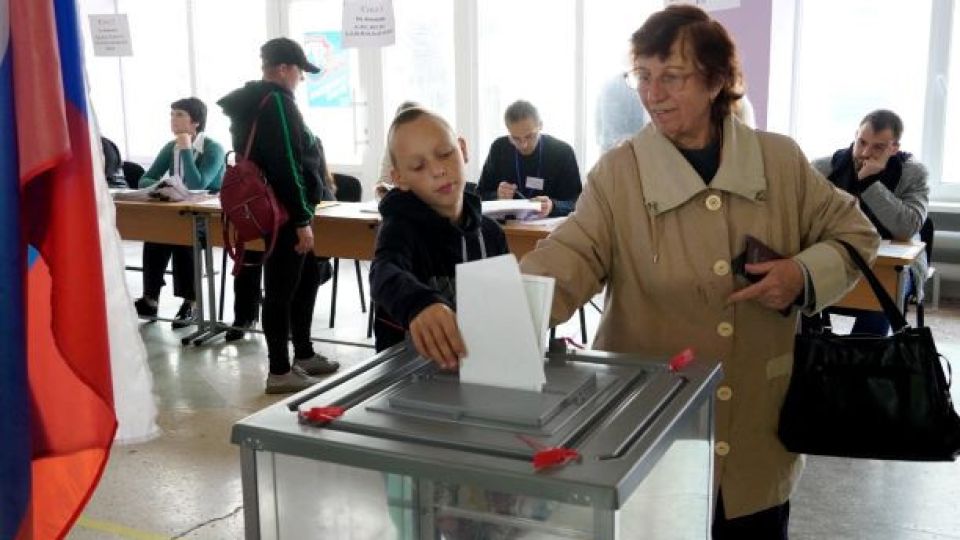October 5, 2022
JAKARTA – The time for ASEAN to come together as a cohesive entity may yet arrive one day. That one day will not be in 2025 though. Twenty-25 is when ASEAN is supposed to function as an ASEAN Community. But the international system has broken down since Feb. 24.
The pan-Slavic wars between Ukraine and Russia staring at ASEAN are dire. They have the specter of World War III with Russia’s latest annexation of 20 percent of another strategic country in the heart of Europe.
By this token, instead of three pillars of community to walk slowly to one ASEAN, where the member-states continue to improve on their political and security cooperation, economic integration and social-cultural cooperation the ASEAN way, current major world crises have turned ASEAN Community into a stalled project where the “centrality” of ASEAN is gone, even when COVID-19 was the problem for the last two-and-a-half years. The website of ASEAN Secretariat found no entries on “Ukraine”.
Jakarta knows it. In fact, the truth is, every single capital knows it. That is why Myanmar’s coup leader Senior General Min Aung Hlaing, despite attending the special summit convened by all ASEAN leaders in Jakarta, in April 2021, two months after the coup had taken place, has shown no signs of being willing to reverse course or step down. Myanmar has instead become a “Murder Republic”.
Why is ASEAN given more prominence than it deserves?
A key reason is the secretary-general of ASEAN, invariably, backed by three deputy secretary-generals who are on fixed three-year contracts, is not expected to do much. The ASEAN Secretariat can just continue in a piecemeal manner, while member states seek to project some semblance of unity, when the fact is such convergence of national interest is only fleeting and ethereal.
Discerning directors in ASEAN Secretariat often do not want to play this game. Honorable resignation comes with the territory of any good directors. Those who stay on are choking the ASEAN Secretariat of fresh blood.
Indeed, the late Datuk Seri Mokhtar Selat, a deputy secretary-general of Malaysia, once confided to this author: “The ASEAN Secretariat’s ability to assist the Secretary-General and ASEAN as a whole is only as good as the directors’ willingness to allow fresh talents to come in to succeed them. If they choose to stay, ASEAN Secretariat’s institutional progress is halted.”
But the 12 dialogue partners of ASEAN do not understand the detrimental effects of such office politics. Why is this the case?
First and foremost, the dialogue partners have diplomats and bureaucrats that need to remain relevant. Otherwise, both lose their jobs. Hence, they continue to provide the necessary funding to the ASEAN Secretariat, on top of the US$2 million that each of the 10 member-states of ASEAN should pay annually.
With merely $20 million in its coffer, it is actually the 12 dialogue partners that sustain ASEAN Secretariat. When the dialogue partners do not know how to call for an audit of how their money is spent, then the ASEAN Secretariat is immediately a free rider.
They do show up for work, even get the senior officers and the likes to produce the necessary reports, in preparation of any meetings that the ASEAN secretary-general and deputy secretary-generals have to attend. But the reports are mere platitudes, whether they are in the form of speeches by the ASEAN secretary-generals or Briefing Notes and Talking Points (BNTP).
The second reason is precisely because Indonesia sits on an ASEAN Secretariat that cannot function in a manner and form consistent with breaking the nomenclature of uninspiring research let alone produce readable ones. This is where the Secretariat hits the bottle neck. Its performance pales in comparison to the likes of what the International Panel of Climate Change (IPCC) once did with ex-United States vice president Al Gore, even jointly receiving the 2007 Nobel Peace Prize.
Thus, Indonesia must now go it alone. President Joko “Jokowi” Widodo must bring his chairmanship of the Group of Twenty (G20) Summit to a productive end in Bali on Nov. 15-16. This does not mean abandoning ASEAN. Indonesia can still consult with Singapore, Malaysia, the Philippines and even Cambodia. The chair of ASEAN, which is Cambodia in 2022, is after all a member of the G20 too. But whatever Indonesia does, it must understand that there are events happening external to Indonesia which need serious attention.
Top of the list, which no present or past secretary-generals of ASEAN have spoken up about, in any news website, such as Project Syndicate, let alone the Center of Strategic and International Studies (CSIS) in Washington D.C., is the pan-Slavic conflict between Russia and Ukraine, that has now resulted in what Russia calls its “incorporation” of five areas that belong to Ukraine.
Therein lie Luhansk, Donetsk, Kherson, Zaporizhzhia and Crimea, the latter since 2014. In turn, Ukraine has asked for “accelerated membership in the North Atlantic Treaty Organization (NATO)”, which has triggered the geopolitical mercury to shoot up.
These are dangerous developments which Indonesia cannot ignore. There is now an even higher possibility of a nuclear exchange between Russia, Ukraine and NATO. Prof. Tim Snyder called this conflict a “colonial war”. Yet. It is completely dangerous beyond the measure of any description.
President Jokowi has once mentioned to Russia and Ukraine that the two countries, regardless of what support they can draw upon, must have a “ceasefire”. President Jokowi is right.
Should Indonesia want this conflict to end for the betterment of global peace, and itself, then Jakarta has to be bold. Very bold.
***
The writer is an associate fellow at Edx.org, pioneered by Harvard and MIT.


